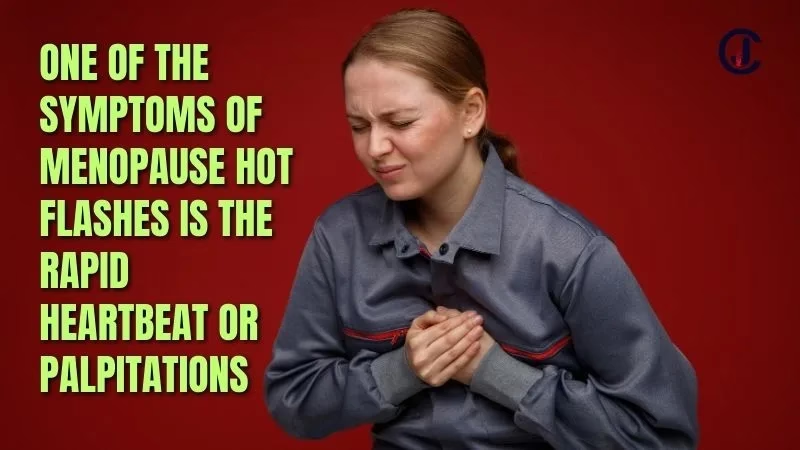Table of Contents
Menopause Hot Flashes constitute one of the most common and disturbing symptoms women suffer through. This natural life stage marks the cessation of the menstrual cycle and, thus, is occasionally accompanied by some undesirable changes, the most conspicuous among them being the hot flashes. These fleeting, unbearably intense heat sensations can disrupt the ability to sleep, erode work efficiency, introduce fissures into interpersonal relationships, and diminish the quality of shared living experience.
If you are going through perimenopause or menopause and finding yourself with unpredictable bouts of heat accompanied by profuse sweating and flushing, then you can rest assured you are not an isolated case- up to 75% of all women experience menopause hot flashes within the phase. This complete guide attempts to define menopause hot flashes and shed light on their causes and duration, along with possible triggers and some of the best hot flashes treatment options-from lifestyle changes to medications.
Understanding Menopause Hot Flashes
Menopause Hot Flashes feel like sudden rushes of heat that normally spread over the face, neck, and upper body. They may come with sweating, a fast heartbeat, and nervousness. Hot flashes occur in the daytime, or during the dark hours at dawn, gives an impression of night sweats.
Key facts about menopause hot flashes:
- They are the most common symptom of menopause.
- They are caused due to hormonal changes, mainly the reduction of estrogen.
- They can start years before your last menstrual period (during perimenopause).
- They vary from person to person as to their intensity and duration.
Why Do Menopause Hot Flashes Happen?
Although there isn’t complete understanding about the exact mechanism behind Menopausehot flashes, hormonal fluctuations have been regarded as the main cause. As estrogen levels drop, the hypothalamus, or temperature control brain center, becomes more sensitive to slight temperature changes.
This hypersensitivity causes your body to react as though it’s overheating, even when it’s not:
- Blood vessels dilate to release heat (flushed skin).
- Sweat glands activate to cool the body.
- Heart rate may increase.
- Chills may follow once body temperature resets.
When Do Menopause Hot Flashes Start?
Hot flashes can begin:
- During perimenopause — often in the mid to late 40s.
- At menopause — the end of a menstrual cycle over a span of twelve months.
- Postmenopause — some women have hot flashes until they are in their 60s.
Duration of each episode: Usually about 1–5 minutes, but a few can stretch to 10 minutes.
Lifetime duration: It may last for months or, for some women, even more than 7-10 years.
Also Read: Does Insurance Cover Freezing Eggs? The Ultimate 2025 Guide for U.S. Women
Symptoms of Menopause Hot Flashes
While the main symptom is a sudden wave of heat, menopause hot flashes can include a combination of:

- Warmth spreading from the chest to the face
- Red, flushed skin
- Profuse sweating
- Rapid heartbeat or palpitations
- Tingling in the fingers
- Anxiety or a sense of dread
- Chills after the flash subsides
- Sleep disturbance (if at night)
Triggers That Can Worsen The Hot Flashes
Identifying personal triggers can help you reduce the frequency and severity of hot flashes. Common triggers include:
- Hot or spicy foods
- Alcohol
- Caffeine
- Smoking
- Warm rooms or hot weather
- Stress and anxiety
- Tight or synthetic clothing
- Certain medications
Keeping a hot flash diary can help pinpoint patterns.
How to Manage Menopause Hot Flashes Naturally
For many women, lifestyle changes will be able to minimize hot flashes considerably.
1. Dress in Layers
Wear cotton-type breathable fabrics. As soon as the hot flash begins, remove the outer layer.
2. Stay Cool
- Keep a desk fan at hand or carry a portable hand fan.
- Lower the cooling temperature.
- Go for moisture-wicking sheets through and through.
3. Avoid Known Triggers
When tracking your menstrual cycle, keep in mind that caffeine, wine, or hot showers may set off menstrual hot flashes. Hence, these should be limited.
4. Practice Stress Management
- Meditation
- Yoga
- Tai chi
- Deep breathing techniques
5. Exercise Regularly
Physical activity can help regulate body temperature and hormones.
6. Maintain a Healthy Weight
Higher body fat can trap heat, intensifying hot flashes.
Dietary Changes for Menopause Hot Flashes

What we eat will have an influence on hot flashes during menopause:
- Get more phytoestrogen-rich foods — Plant compounds that mimic estrogen are found in soy, flaxseeds, and chickpeas.
- Hydrate yourself — Aim to drink at least 8 glasses of water daily.
- Avoid hot flashes by cutting down on alcohol and caffeine.
- Healthy nutrition — Maintaining balanced blood sugar can calm the discomfort.
Also Read: Vitamin B12 Foods After 50: 12 Essential Sources You Need
Medical Treatments for Menopause Hot Flashes
If menopause hot flashes interfere with daily life, medical treatment may be an option.
1. Hormone Replacement Therapy (HRT)
Pros: Most effective option for severe hot flashes.
Cons: Not suitable for everyone; may increase risks of blood clots, breast cancer, or stroke in some women.
2. Non-Hormonal Medications
- Antidepressants (e.g., paroxetine, venlafaxine)
- Gabapentin (for nerve pain but also reduces hot flashes)
- Clonidine (a blood pressure medication that may help)
Complementary and Alternative Remedies
While evidence is mixed, some women find relief with:
- Black Cohosh
- Soy Isoflavones
- Evening Primrose Oil
- Acupuncture
Always consult your doctor before starting any supplement, as some can interact with medications.
Coping with Night Sweats
Night sweats — menopause hot flashes during sleep — can disrupt rest and affect mood.
Tips:
- Keep your bedroom cool (around 65°F / 18°C).
- Use breathable sheets.
- Sleep in moisture-wicking pajamas.
- Avoid alcohol before bed.
Emotional Impact of Menopause Hot Flashes

Beyond physical discomfort, menopause hot flashes can:
- Lower confidence
- Cause social embarrassment
- Trigger anxiety
- Disrupt work and relationships
Support strategies:
- Talk openly with friends or a partner.
- Join menopause support groups.
- Consider counseling if anxiety is high.
When to Seek Medical Advice
You should see your doctor if:
- Hot flashes are extremely frequent or severe.
- They start before age 40.
- They interfere with daily activities or sleep.
- You have other symptoms like irregular bleeding, fever, or rapid weight loss.
Long-Term Outlook
Many women experience menopause hot flashes that eventually dwindle and cease. On the other hand, some may continue experiencing these symptoms for even a decade or longer. Knowing the triggers, keeping healthy, and opting for treatment options can go a long way toward making life comfortable and worthwhile.
Key Takeaways
- Menopause hot flashes are caused by hormonal changes that affect the body’s temperature control.
- They can last from a few seconds to several minutes, and may continue for years.
- Lifestyle changes, medical therapies, and natural remedies can help.
- Identifying triggers and practicing stress management are crucial steps.
- Support and education make the menopausal transition easier.

